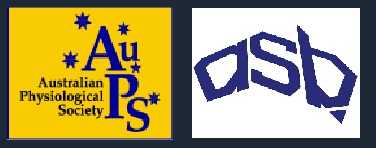

The ASB Scientific program features eight themes across the three day conference:
If you are a student or ECR, please visit the Student and ECR page for information about workshops and functions for ECRs, and travel support for the conference
In 1995, ASB instituted an award for young investigators: the Young Biophysicist Award (YBA). Its purpose is to encourage members of the Society who were about to or had recently embarked on a career in biophysics
The three candidates for the 2022 YBA will be presenting their work on Tuesday at 3pm (room MS1 158/159)
Lisanne Spenkelink obtained her BSc in physics in the Netherlands and her joint PhD degree in biophysics in the Netherlands and Australia. She is currently a Research Fellow at the University of Wollongong. Her research focuses on the development and use of single-molecule techniques to study the dynamic behaviour of proteins in complex biological systems, with a focus on DNA replication.
In 2022 she was awarded an NHMRC emerging leadership grant to develop a novel single-molecule directed-evolution method. This new method allows the rapid screening of both phenotype and genotypes of a large library of variants at the single-molecule level. She aims to bring together expertise from the fields of physics, chemistry, and biology to help solve important medical challenges facing the world today.
Abstract 102O: Single-molecule genotyping of thousands of variants
Dr Steffi Cheung is a structural biologist who completed her doctoral studies in 2019 at the St Vincent's Institute of Medical Research under the mentorship of Professor Michael Parker. She has since then undertaken a postdoctoral role at the Bio21 Institute at the University of Melbourne. Her work focusses on understanding the molecular mechanisms of cell surface receptors and how they signal messages across cell membranes. She has recently been successful in the NHMRC ideas grant scheme and her performance has been recognised by numerous awards, such as the 2020 ASBMB Research Fellowship.
Ashleigh Solano is currently completing her DPhil in the School of Physics, University of Melbourne under the supervision of Dr Elizabeth Hinde. Throughout her research she has aimed to understand how proteins efficiently navigate the complex overcrowded cellular space to encounter specific binding targets. Many proteins self-associate into higher order oligomeric species, and the change in radius associated with this event is thought to redefine the cellular space accessible for protein diffusion. However, to what extent protein oligomer formation facilitates arrival at a specific target site is not entirely understood. Along this line, Ashleigh has endeavoured to create significant methodological developments required to gain further insight into these mechanisms, as currently it is only possible to spatially map protein self-association without any readout of the mobility of each protein conformation. Ashleigh has developed novel brightness fluctuation correlation-based algorithms throughout her doctorate program that allow the detection of fluorescently labelled proteins undergoing oligomer formation and spatially map the impact of intracellular architecture. Ashleigh is interested in topics including advanced microscopy techniques, single molecule studies, fluctuations correlation spectroscopy and quantitative cellular dynamics.
Abstract 104O: Brightness cross correlation spectroscopy quantifies protein dynamics as a function of stoichiometry within live cells.
Saffron did her bachelor in biomedical science in Townsville, her PhD in chemistry in Sydney, an industry-focused post-doc in the UK, and now works in the physics department at RMIT, making her both geographically and disciplinarily 'well-travelled'. This gives Saffron experience in a range of techniques including cell culture and small angle scattering. Saffron's main research focus is applying deep eutectic solvents and ionic liquids to real world problems, including cryopreservation, antimicrobial treatments, and advanced materials synthesis.
The "flash talk - poster pitch" session is an initiative from the 2021 conference where poster presenters give a quick fire 3min overview of their research project. This is followed by a more 'traditional' style poster session over the lunch break, giving the audience a chance to interact with and ask questions of the presenters. The list of presenters, titles and abstracts can be accessed via the conference program, Monday - Session Two.